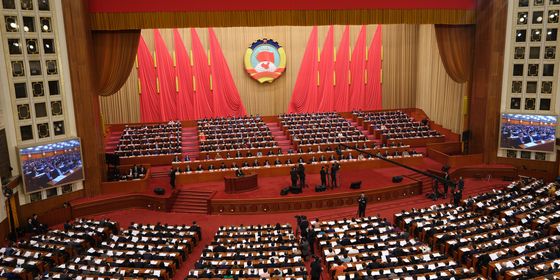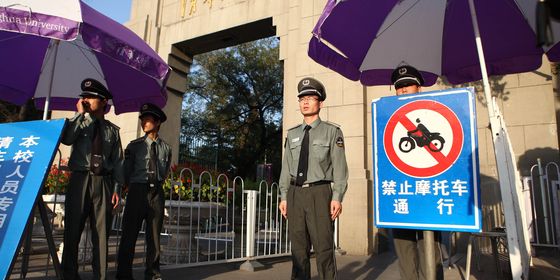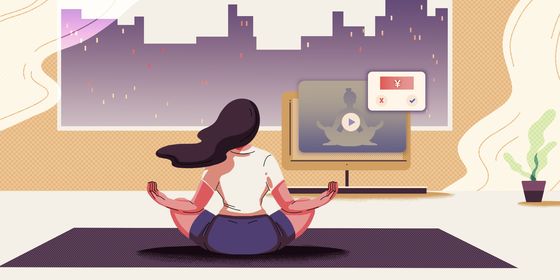A glimpse into the ethical debate on Chinese parenting by proxy
This past weekend, the Wuhan Morning Post reported that a 63-year-old woman was diagnosed with depression from the stress of caring for her grandchildren, igniting debate on Weibo over the ethics of young people foisting their child-raising responsibilities on aging parents.
According to the report, the woman, surnamed Li, came to Wuhan three years ago from her hometown in Shandong province to help raise first her grandson, then her new granddaughter. Li also did all the housework while her daughter was at work, and slept with the grandson at night, when she would be frequently woken by the child. After her diagnosis, Li told doctors that she was “lived in constant fear of accidents” or illnesses that the child could suffer under her watch, for which she could be blamed by her daughter or son-in-law.
In 2013, researchers from Case Western Reserve University who conducted long-term studies on grandmothers in various family situations, from full-time caregivers to those not involved in their parenting their grandchildren at all, concluded that grandmothers who are grandchildren’s primary caregivers need help dealing with depression and family strain. Still, the Wuhan report claims that 60 to 70 percent of children under age 2-and-a-half in China are cared for by their grandparents, as well as 40 percent of children over age 3.
Given the lackluster support for mental illness in China, these figures are indeed alarming. However, netizens—whom, it must be noted, tend to be young—found the matter far from clear-cut, with many reluctant to simply pile on the parents for their entitlement (though there’s still plenty of that):
Elder people raise children to share the burden, but many adults regard it as the elders’ duty. Why should your parents be obliged to raise your children after having raising you?
Rather, many empathize with young couples have no choice because they have to work full-time.

It’s no longer realistic to raise one’s children oneself. Young people today have tremendous pressure at work, and can’t afford to live on a single income—it’s not enough to buy a house, raise a child, even buy food or clothing!

It’s not that young people don’t want to raise children, they have to work…though it’s true that this is exhausting for the elderly, nobody has it easy.
Some have pointed out that the entitlement goes both ways: There are young adults who were pressured by parents to have children.

Back when parents pressure you to have children, they promise to help you raise them; then afterwards they complain; it’s true that the older they get the less energy they have to raise children…so don’t have children unless you’re able to raise them, no matter what parents say.
Finally, some point out that without a total overhaul of society’s attitudes on child-rearing, all that this debate accomplishes is add more pressure on women:

You’re selfish if you don’t have a child; you’re lazy if you stay at home to raise your children; if you ask your parents to raise them you’re unfilial. Why does this organism known as “woman” exist except to be criticized?

Women are supposed to raise their own children, and also be independent; are they superwomen? Full-time housewives who get cheated on by their husbands get looked down on by society; work, and people say that’s irresponsible to their children. What company allows women to bring their kids to work?

I have looked through the comments, which are all debating over whether the children should be raised by mother or grandmother. Are they all from widowed families? Is the father dead?
These generational and gendered attitude divides are unlikely to have an easy solution. More applicable in this situation, but less discussed, may be the cost and other stresses of living in China’s cities, lack of affordable childcare options, the pressure on the current generation of young adults to succeed, and the lack of mental health services for the elderly (or anybody). Meanwhile, Ms. Li recently got some help—of a sort: Now that the grandson has started kindergarten, she’s just responsible for the new baby. The boy is going to live with his other grandparents.
Cover image from Flickr












